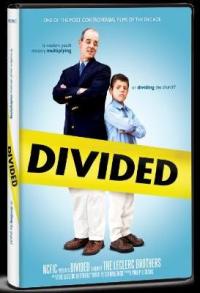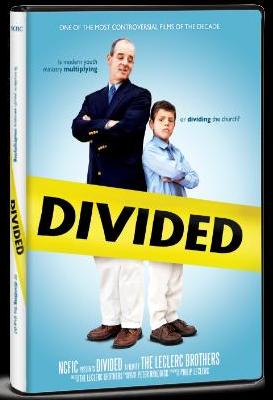
Every Wednesday night during the school year, I join other adults to meet with high school students to study the Bible. According to the new documentary Divided, now showing for free online, this practice is unbiblical, worldly, and dangerous to families—not to mention an extension of evolution and paganism.
From my 12 years as a volunteer youth worker, I know that just as churches are flawed, so are youth ministries. We've made mistakes. We've course corrected; pizza and eating goldfish are no longer the meat and potatoes of youth discipleship. And these kinds of conversations must continue; we have to challenge what we do and ask tough questions including: Why are so many church kids leaving their faith behind?
Divided is supposedly asking the same question. It's billed as a "journey to discover the truth about modern youth ministry, with this question in mind: ‘Is it an issue with the church, the kids, the parents?'" But this 60-minute film isn't interested in fair exploration or discussion. Instead, it is propaganda, a commercial for the Family Integrated Church movement, an association of interdenominational churches which view age-segregated, peer-oriented youth ministries as "family-fragmenting" and unscriptural. The movie both begins and ends with the logo for producing organization The National Center for Family Integrated Churches (NCFIC).
The movie begins with a young filmmaker, Philip Leclerc, saying he's seeking answers to his questions about youth ministry. But by the end, that quest feels like a ruse—a fake journey for answers he already knew. (Leclerc, who made the movie with his brother, admits his father pulled him out of high school youth ministry.) By the time Leclerc delivers his final verdict—"God didn't ordain youth ministry. He didn't create Sunday school. He did create the church and the family"—it's obvious he's been toeing the company line from the start.
The most striking evidence: Almost every Divided interview is with supporters of the movement, including extended time with NCFIC director Scott Brown (who is credited as an executive producer). Other interviews (like those with youth pastors at the National Youth Workers Convention) are truncated and used strategically—to the point that they can feel as if they are used out of context.
This is not the only questionable methodology. The film is filled with scare tactics, vague overstatements, experts with random credentials like "Jake's Café," broad-brush painting and sketchy statistics like this from Britt Beemer of America's Research Group: "90 percent of kids had so many doubts before college you could drive a semi-truck through." How many doubts create such a hole? Are we talking an 18-wheeler?
While some featured adherents of the movement present welcomed nuance (aka "this approach doesn't work in all contexts but it does in ours"), most draw a black-and-white picture that youth ministry is not mentioned in the Bible—and is therefore categorically dangerous. They go on: Age-segregated programs date back to paganism and are actually schemes to get evolution into churches. (Get it? Students advance from first grade to second just like Neanderthals to humans). All nuance is tossed aside in the thesis that youth ministry must be eradicated wholesale in favor of fathers, and fathers alone, instructing and mentoring young people.
We as a faith community must continue discussing how we reflect the model of church and ministry in Acts and the epistles. Unfortunately, the video equivalent of an angry letter-to-the-editor doesn't extend that conversation.
Watch the trailer here:
Divided Trailer from NCFIC on Vimeo.









